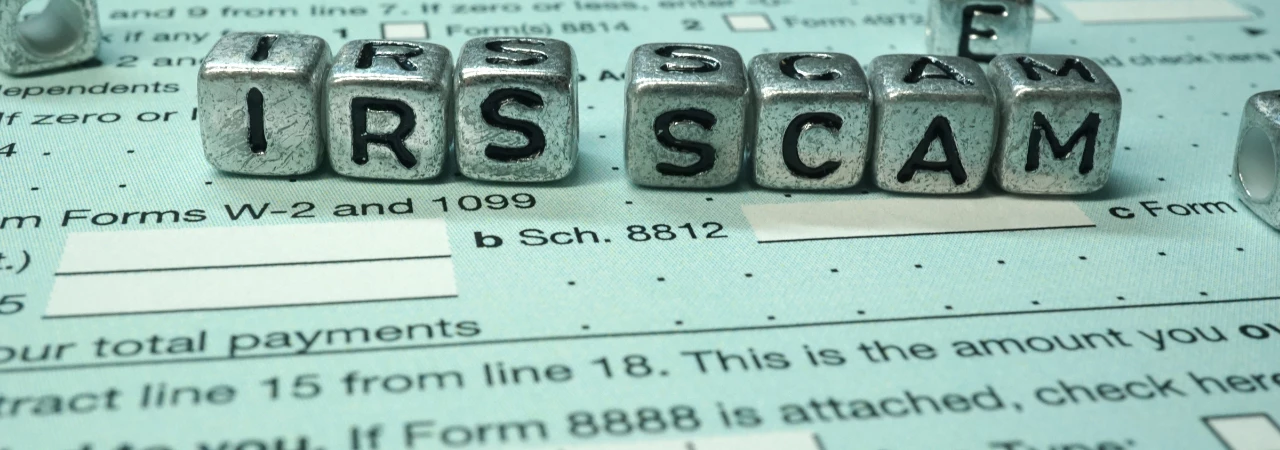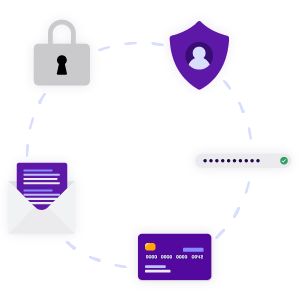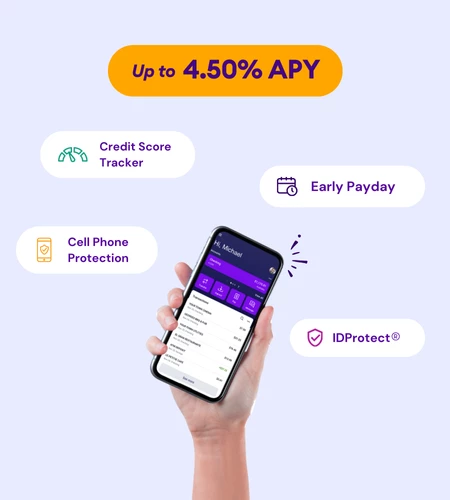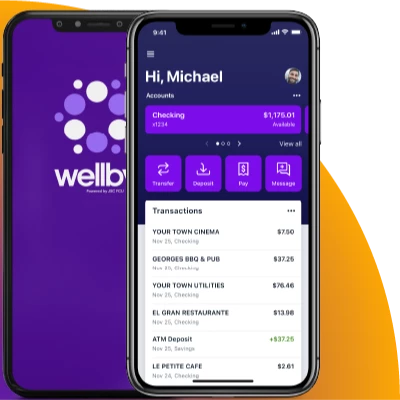February 6, 2025 | by Brian Truong

5 IRS Scams to Look Out for This Tax Season
April 13, 2022
By Chad Carpenter
 Tax season is one of the most significant times for identity theft. It's like the holiday season of phishing, verbal phishing (vishing), and personal information misuse. Hackers who already have stolen personal data will file false taxes and scheme to get other people's tax returns.
Tax season is one of the most significant times for identity theft. It's like the holiday season of phishing, verbal phishing (vishing), and personal information misuse. Hackers who already have stolen personal data will file false taxes and scheme to get other people's tax returns.
Hackers looking for an opportunity will use the pressure of tax season to get you on the phone answering questions that you shouldn't. People lose millions every year to scams, and today, we're here to provide some essential tips to keep your information and your finances secure this year.
We will discuss the five most common IRS scams to watch for this tax season and how to protect yourself and your business from these popular schemes. We also encourage you to visit our security center to learn how you can protect your personal information and read more about the security services available to you as a Wellby member.
Tax-Related Identity Theft
Your digital information is out there. A determined hacker could, with time and effort, find out the key information needed to open or fraudulently change your accounts. Once a hacker has your name, birthday, and potentially your social security number, they can cause real damage. Unfortunately, most people don't realize their taxes have been falsely filed (with a new address) until they can't file their real tax return with the IRS when the time comes. However, there are a few things to watch out for.
Clues that you have been targeted by Tax-Filing Identity Theft.
- IRS rejects your tax return because one has already been filed
- IRS notification to an online account opened in your name - not by you.
- IRS sends a transcript by mail that you did not request.
What to Do Next
If you have been targeted by tax-related identity theft, you will need to report your identity as stolen in a criminal act. Report suspicions using the IRS Form 14039 Identity Theft Affidavit to make sure that the crime goes on record and authorities are ready to respond. The IRS can then help you sort out your tax situation, identifying the false information now entered into their database system. You should also report tax-related identity fraud to the FTC (Federal Trade Commission) along with major national credit bureaus to black-mark the fraud source.
Tax Refund Recalculated Scam: Vishing
The second type of tax season scam is a classic Vishing maneuver. This means "phishing over voice" and can be done entirely using a telephone or an email. The scammer calls you on the phone, claiming to be the IRS wanting to talk about your tax return structure. Usually, the message is that your "Tax refund" is being "recalculated" - hence the name of this scam.
The scammer will claim that you are receiving additional refunds and ask for your total information; your full name, address, phone, background information, and even your social security number. Keep in mind, that this is everything a hacker might need to effectively steal your identity, bank accounts, or your tax returns in the next step they take after collecting your data over the phone.
How to Avoid This Scam
Know how the IRS communicates: by mail. For the most part, the IRS rarely picks up or answers the phone and prefers to handle important communications by letter. They would also never ask for information over the phone, especially not highly specific personal information. If you realize you are talking to someone who is likely not who they say they are and is asking for your most sensitive personal information, end contact with them. You can simply hang up the phone or delete the email to eliminate exposure and risk.
Stimulus Payment Scam
 The pandemic stimulus check led to new complications and scams regarding checks sent to families and individuals. You may, for example, receive an email that explains how you are due an additional or bigger stimulus check — but one more thing is needed for the money to be successfully transferred to you. These scams may offer you a new 2022 stimulus check or an opportunity to qualify for more.
The pandemic stimulus check led to new complications and scams regarding checks sent to families and individuals. You may, for example, receive an email that explains how you are due an additional or bigger stimulus check — but one more thing is needed for the money to be successfully transferred to you. These scams may offer you a new 2022 stimulus check or an opportunity to qualify for more.
Beware, these scams almost always have a big shiny button to click or a link to follow, and some ask for a small transaction fee to hopefully get your payment information, as well.
How to Avoid This Scam
If you think the IRS is calling you or sending emails about special bargains, they are not. The IRS will communicate with you via regular mail. You will never be asked for a deposit or transaction fee to receive a stimulus check from the government - you will never be charged to receive aid. If you are asked to pay money or give private information for a bigger or additional stimulus check, beware. It is most likely a scam meant to take advantage of your finances.
The Gift Card Scam
This is a scam that imagines debt you don't actually have. In this scam, they call you and leave a voicemail stating that you owe additional federal taxes and are in danger of being charged for criminal activity if the amount isn't paid.
The scam plays on fear, scaring the target into revealing their personal information over the phone or entering it into an infected form. Some scammers have gone so far as to threaten to "cancel your social security number," something which can't be done.
The scammer will then demand to be paid in gift cards. Yes, they will claim that you can pay off your additional IRS debt by buying gift cards and reading the pins over the phone. The fear tactic is used to soften you up before this ridiculous demand.
How to Avoid This Scam
Don't buy gift cards. If anyone ever demands to be paid in gift cards or gift card pins, they're a scammer. Gift cards are the untraceable digital money that existed before cryptocurrency, and are a common way for hackers to demand ransom or payment. The IRS does not accept payment in gift cards. The IRS also will not call you about any taxes or penalties; you will receive a letter.
Someone asking for gift cards over the phone? Hang up.
The Taxpayer Advocate Scam
 The IRS sponsors the Taxpayer Advocate Service to help taxpayers understand their taxes and file tricky tax problems. However, this public service has also been targeted for impersonation by hackers looking to trick unwary tax-filers into revealing personal information over the phone - thinking they are talking to an advocate.
The IRS sponsors the Taxpayer Advocate Service to help taxpayers understand their taxes and file tricky tax problems. However, this public service has also been targeted for impersonation by hackers looking to trick unwary tax-filers into revealing personal information over the phone - thinking they are talking to an advocate.
Usually, scammers using this system will call you first using a Robo-caller, identifying as the taxpayer advocate service and requesting a call-back. Once you call back, they use the semblance of an official connection to ask for secure personal details like birthdays and social security numbers.
How to Avoid This Scam
The Taxpayer Advocate System does not call people; you call them. They're an available resource for filing your taxes, not an enforcement arm of the IRS. Unless you contact them for assistance first, any calls from Taxpayer Advocate Services are likely to be an identity thief.
Stay Vigilant
While it's important to keep a watchful eye out for these scams around tax season, scammers don't stop once the season ends. With some slight variances, scammers use many of these tactics year-round to try and gain access to bank accounts and personal information, so don't be surprised if you receive a scam email or phone call throughout the year. By recognizing these scams and knowing how to handle them, you'll be better prepared to keep your private information safe and to better prevent fraud and identity theft from affecting you and your family.
If you receive a suspicious email or phone call asking about your financial information with Wellby, we encourage all of our members to contact us to discuss the communication you've received so that we can assist in determining its legitimacy.
Chad Carpenter hails from Dallas, Texas, and lived in Denver, Colorado, for 15 years before landing in Houston. Chad has over 20 years of marketing and SEO experience, including several years in the agency world. When he’s not clacking away on his keyboard optimizing Wellby's digital presence, digging into data, or immersed in AI, Chad enjoys good food, good friends, and good movies (just don’t expect him to watch any in interactive 4D). Chad has two cats, one that loves him and one who is aloof.
Related articles you might like
December 23, 2024 | by Brian Truong
Budgeting 101: Comparing Fixed and Variable Costs
December 12, 2024 | by Brian Truong







